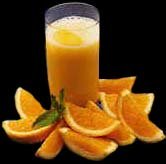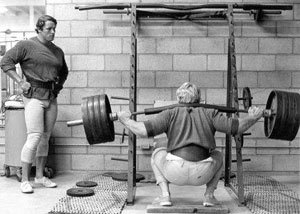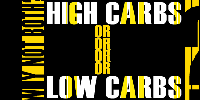Your blood pressure is through the roof, the veins in your neck are ready to burst, and your legs are starting to feel like linguini; the bar is bent around your neck, loaded with iron on each side.
You have only one rep left in your set of squats and you've got sweat in places you never dreamed possible-you might actually live through this. And all you can think is that you're this close to a finished workout and collapsing on your couch until the sun rises again.
Hold on for a second.
You can't consistently beat up your body and not give it what it needs. Not sure what that is? Well, read on for three big tips on how to keep your body fueled for exercise (and a fourth for what else to do to help with recovery).

Tip #1:
Eat A Balanced Diet.

When you're active, your body needs energy from carbohydrates, protein, and fat to function at its peak.
- Carbohydrates: Don't fall for the low-carb mantra; carbs are the body's primary energy source and should be 50 percent of your total caloric intake.
 |
||||
 |
|
 |
||
 |
||||
-
The bulk of that should be in the form of whole grains. This number doesn't necessarily have to increase if you're more active than the average person, but should increase along with your calories.
- Protein: Protein needs go up with activity level. Shoot for a diet that's made up of 25 to 30 percent lean proteins, like skinless poultry, eggs, fat-free cottage cheese, whey protein, fish, and lean red meat-especially if you're new to weight lifting.
- Fat: In the 90's, we lived in a fat-phobic society. With the low carb craze, however, we've come to believe that fat is good (bacon fat is a health food, right?). Well, yes and no.
Moderation is everything, folks. While a pound a day of bacon fat may not get you into the octogenarian club (or the Mile High Club, since fat keeps testosterone levels elevated), 20 to 25 percent of fat from macronutrients like olive oil, nuts, avocado, and fish oils just might.

Tip #2:
Favor The Right Vitamins, Minerals, And Antioxidants.

Basically, all of the above come from the foods we eat or pills, although food should always be the first option for most vital nutrients. But sometimes popping pills might be useful too.
For those who are unfamiliar, an "anti-oxidant" is to the immune system what a Good Samaritan is to a bully - it kicks the crap out of free radicals in our body, and prevents them from attacking our cellular DNA, mitochondria, and cell membranes. Antioxidants put these bullies in their place and stop them from causing harm. Here are some antioxidants to consider:
- Vitamin E: The principle function of vitamin E is to maintain the integrity and stability of cell membranes. It's an essential, fat-soluble antioxidant that is fairly hard to come by in foods, unless you like to eat wheat germ with a shovel (Weirdo).
While wheat germ and almonds are great sources of vitamin E, you may need, in this case, to take a supplement with about 200-400 IU's of mixed-tocopherols, (a particular class of vitamin E) to get what you need.

- Vitamin C: Also an anti-oxidant, this water-soluble vitamin is as easy to come by as Viagra at the Playboy mansion.
Load up on fruits and veggies, and you won't have an issue. But if eating fruit is like pulling teeth, take 250-500 mg/day to make up for it. Remember, though vitamin C ain't the only thing you're getting from food, so you better learn how to like fruits and veggies!
- B-vitamins: The B-vitamins (six in all), are all crucial for energy metabolism. This does not mean B-vitamins provide energy to the body, but rather that they are necessary for energy conversions and such within the body. These do become more important as we age, since our ability to absorb some, like B12, decreases as we get older. Try a B-complex or one of the "adult" multivitamins on the market with higher doses of this group of vitamins.
- Whey Protein: A great source of high quality protein that's now been shown through several studies to contain a number of powerful antioxidants. Shoot for a minimum of 20 grams/day (about one scoop). It's great in a post-workout shake!
- Fish Oil: A nice compact dose of omega-3's (found in salmon and other fatty fish) is great for the 'ol ticker! Shoot for one to two grams per day and add fish to your diet too.
- Selenium: An essential mineral that has been shown through more studies than I can count on two hands to reduce the risk of total mortality from cancers. Some quality multivitamins provide 200 mcg. If not, consider throwing this one down the gullet too.
- Alpha Lipoic Acid: Arguably the best antioxidant available. This is the only one that's both water and fat-soluble. It also helps rejuvenate other antioxidants, like Vitamins C and E. Studies show about 100 mg should do, unless you have diabetes, then higher doses may be warranted.

Tip #3:
Choose Whole Foods Over Supplements As The Mainstay Of Your Diet.

While supplements can sometimes offer additional nutritional benefits, I can't emphasize enough that the best way to saturate the body with nutrients is through whole foods.
 |
|||||
 |
|
 |
|||
 |
|||||

Tip #4:
Get Plenty Of Sleep.

This may sound as boring as some of the other "basic" tips, but without adequate sleep, your body will absolutely not be able to recover.
 It's common for most of us to burn the candle at both ends and put in 110% effort every waking hour; however, if you allow your body to actual settle down for the recommended 8 hours a night (or seven if you allow a little mid-afternoon "power nap"), you will actually perform better in everything you do (in the weight room, at work, etc).
It's common for most of us to burn the candle at both ends and put in 110% effort every waking hour; however, if you allow your body to actual settle down for the recommended 8 hours a night (or seven if you allow a little mid-afternoon "power nap"), you will actually perform better in everything you do (in the weight room, at work, etc).
Moreover, growth hormone increases during sleep and your muscles grow during this time.

Conclusion

So next time you're at a standoff with the squat rack, you'll easily win the battle since you'll be going in with the proper armor (a healthy diet and adequate sleep). If you continue to beat up your body without ensuring all other aspects of recovery are taken care of, sooner or later, you'll be dragging your feet through the mud.



